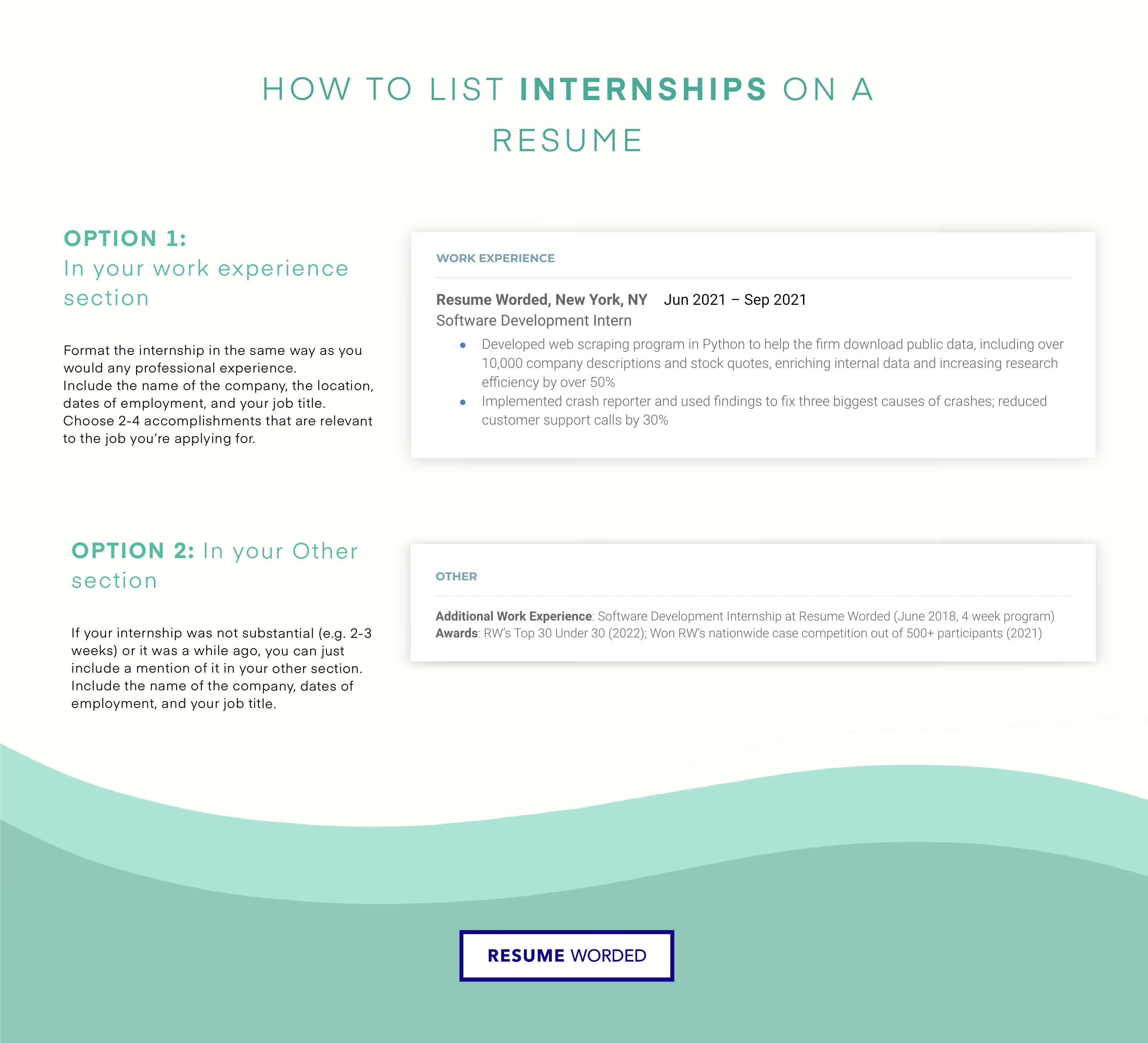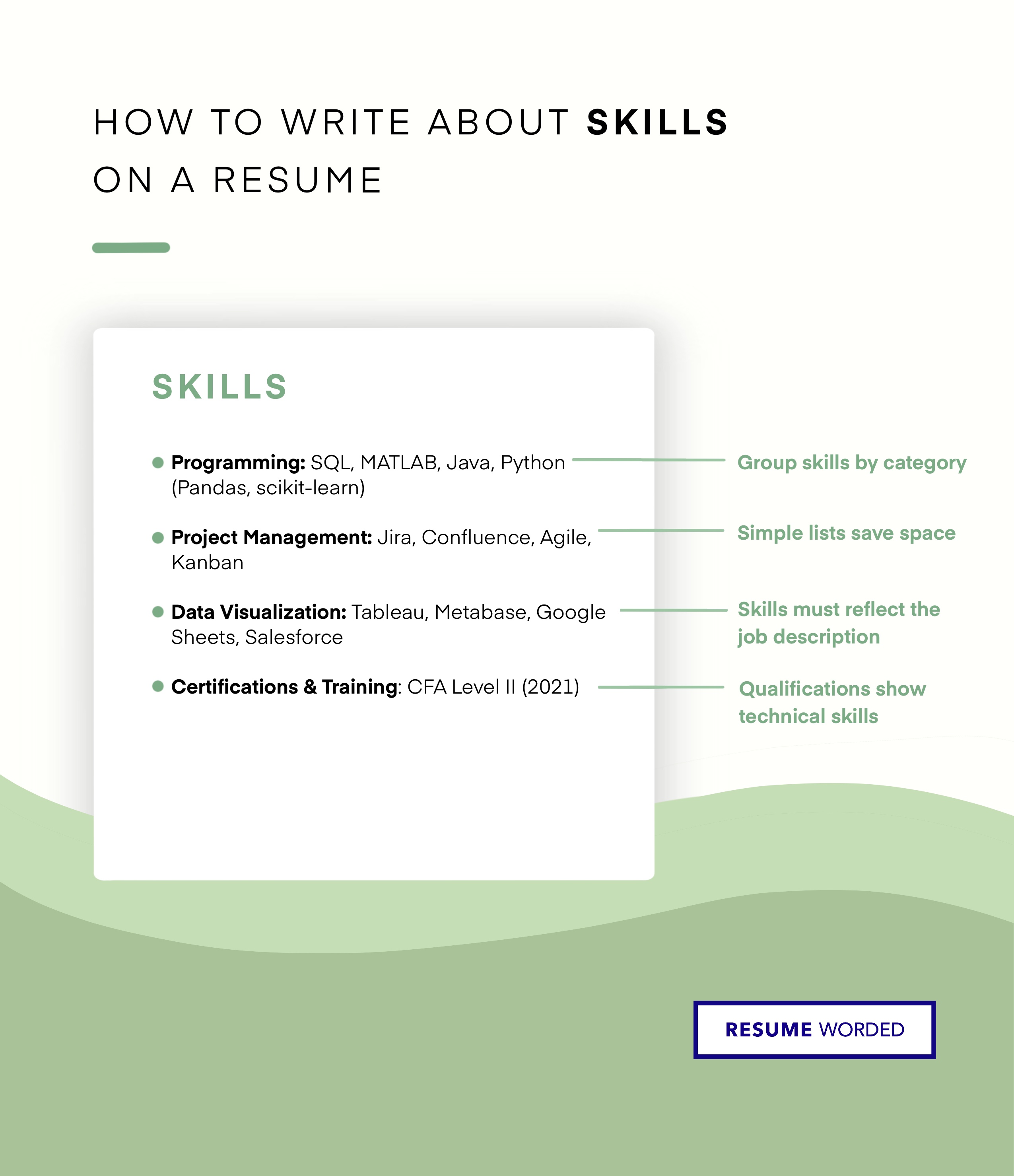Whether you’re a college student or recent graduate, nothing beats the thrill of securing your first internship or job. It’s your big step down a new professional path, and you’re probably eager to add it to your resume.
However, knowing when and where to include an upcoming internship on your resume can be tricky. Generally, you can include it in an “Other” or “Upcoming Roles” section if it’s impressive, confirmed, and relevant to other jobs you’ll be applying for soon.
Not sure if yours fits the bill? Keep reading to find out if this is the right time to include your future work experience on your resume.
How to put an upcoming job/internship on your resume
If you’re wondering how to put an upcoming internship on your resume, you’re not alone. It’s not quite considered “Work Experience” because it hasn’t happened yet, and you can’t include it under “Education” either. Because of this, you should put it under “Other” or a dedicated “Upcoming Roles” section.
Format the position like the others you included in your “Work Experience” section. List the entry as succinctly as possible. Since you haven’t started the job yet, you can’t truthfully write about the type of tasks you’ll be doing in your new role, so don’t include bullet points below it explaining the position.
Make sure your upcoming job or internship listing includes:
- Your job/internship title.
- The company’s name.
- The company’s location.
- Your starting date (month and year).
Should you include an upcoming job/internship on your resume?
There are three major reasons why you should list your upcoming job or internship on your resume — and one why you shouldn’t. Let’s start with the reasons why first. Do include your upcoming job or internship on your resume if:
- You’re a student looking for work. When you’re in school, you probably don’t have a lot of work experience you can include on your resume. At this stage in your professional journey, being able to include anything is an asset. Showcasing upcoming internships or jobs you secured while studying shows hiring managers you’re serious about your work.
- It’s relevant to the job you’re applying for. If the professional experience you’ll gain at your internship directly relates to a job or subsequent internship you’re applying for, absolutely include it in your resume. This shows potential employers you’ll already have relevant work experience by the time they hire you.
- The job or internship is impressive. Landed an internship with a recognizable brand or as part of a prestigious fellowship? Add it to your resume! Hiring managers will read this and likely be impressed that your skills stood out among a list of competitive applicants.
With that being said, there’s one major instance when you shouldn’t include an upcoming job or internship on your resume: If it isn’t confirmed.
The future isn’t guaranteed, but you should do your due diligence to only include job/internship opportunities on your resume if you’ve received written confirmation that they’ll happen. In these situations, verbal confirmations aren’t enough.
If the internship falls through after you included it in your resume, you could appear dishonest to hiring managers. Only include the future job/internship on your resume if you can list it in good faith. That way, your professional integrity won’t be in question if plans change at the last minute.
I recommend uploading your resume to the tool below to see if you've got your upcoming internship, along with your other experiences and skills, listed correctly.
Concerns hiring managers may have about upcoming roles on your resume
Seeing your upcoming job/internship on your resume might raise some questions for hiring managers. They may wonder if you’d be a sub-par employee due to possible:
- Inconsistency. If your future role isn't in line with the position you're applying for, it could make you seem unsure of your career path. This may lead hiring managers to question your dedication to their industry.
- Time commitment issues. That internship you secured at a prestigious company? It might make hiring managers think you won’t have enough time to commit to work at their company.
- Divided loyalties. Sometimes, internships turn into jobs. Recruiters might worry you’ll choose to stay at your current company and reject their offer if an opportunity arises.
- Ambiguity of skills. Since you haven't started the role yet, it's uncertain what skills or experiences you'll gain from it. Listing it might create ambiguity regarding the true extent of your qualifications by the time you would start the new job.
Need help writing your resume? Our free generator can help you find the best way to include past, present and future opportunities on your resume.










